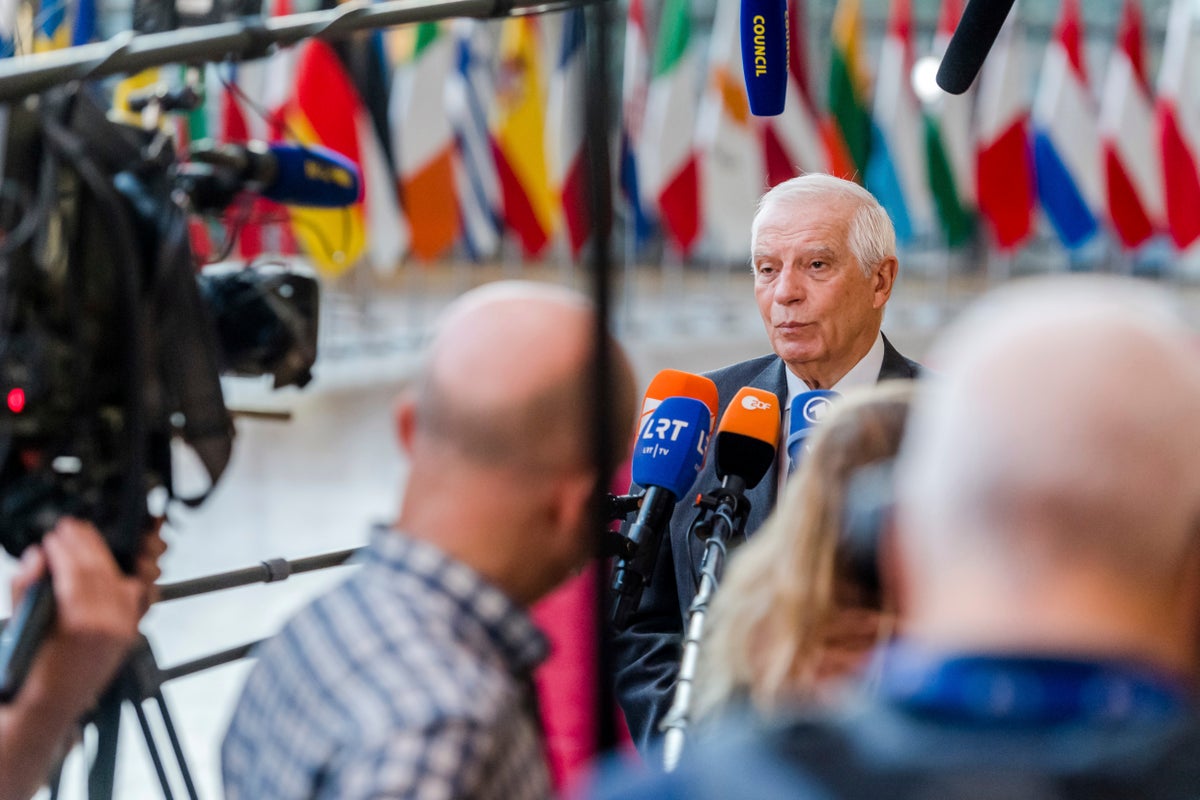
The European Union warned Serbia and Kosovo on Monday that they are on the edge of a precipice and must resolve their dispute over vehicle license plates before next week or face the prospect of a return to their violent past.
Long-simmering tensions between Serbia and its former province mounted in recent weeks over the Kosovo government’s decision to ban Serbia-issued license plates. On Nov. 5, 10 Serb lawmakers, 10 prosecutors and 576 police officers in Kosovo’s northern Mitrovica region resigned over the move.
EU foreign policy chief Josep Borrell said their resignations have left police stations and courts unstaffed, and that “in this vacuum the worst can happen. So both parties need to show more flexibility.”
Under the ban, about 6,300 ethnic Serbs owning cars with number plates deemed to be illegal in Kosovo were to be warned until Nov. 21, then fined for the following two months. From April 21, they would only be permitted to drive with temporary local plates.
“We cannot reach this date without having an agreement or we will be on the edge of a dangerous situation,” Borrell told reporters — referring to Nov. 21 — after chairing a meeting of EU foreign ministers in Brussels.
He said that Kosovo negotiators were due in Brussels on Monday evening and that he stood ready to call a meeting of Serbia and Kosovo leaders to get an agreement sealed before next week.
The issue of Kosovo’s independence sparked a 1998-99 war in which about 13,000 people died. Serbia launched a brutal crackdown to curb a separatist rebellion by the territory’s ethnic Albanians. NATO bombed Serbia in 1999 to end the war.
Kosovo unilaterally broke away from Serbia in 2008. The Serbian government, with support from China and Russia, has refused to acknowledge Kosovo’s statehood. The United States and most of its European allies recognize Kosovo as an independent country.
Serbia and Kosovo must normalize their relations in order to join the European Union. But EU-mediated talks aimed at helping them have stalled, triggering concerns of more instability more than two decades after the conflict.
“They are at a crossroads now. They have to decide which way they want to go. Towards the European Union, or towards the past,” Borrell said.







